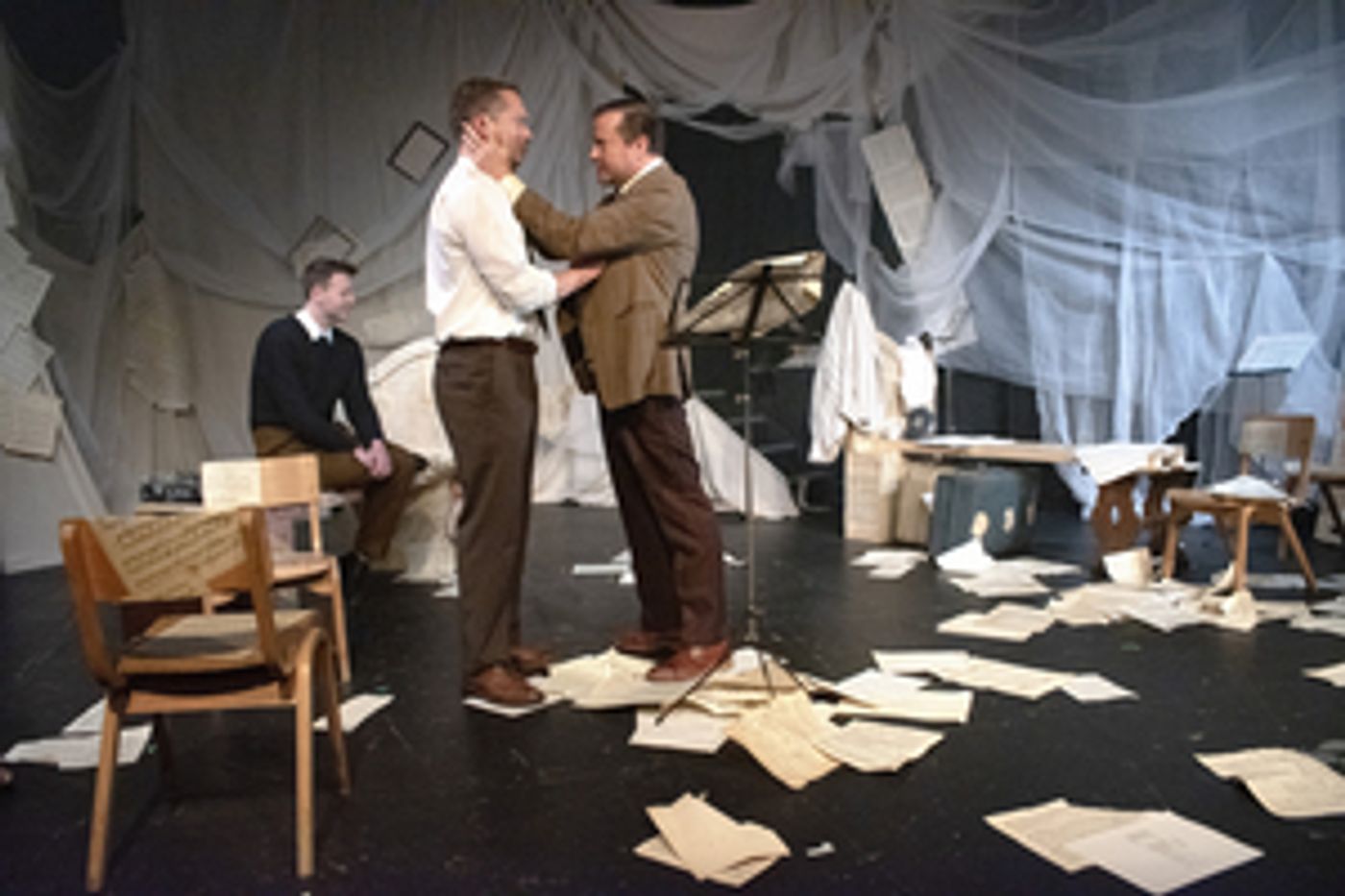Review: TURNING THE SCREW, Studio at New Wimbledon Theatre
Kevin Kelly's thought-provoking play is part of the 'Premieres' season of new writing

![]() As part of New Wimbledon Theatre's Studio Premieres Season, Turning The Screw is a thoughtful and absorbing play that explores composer Benjamin Britten's infatuation with choir boy David Hemmings while he was writing The Turn Of The Screw.
As part of New Wimbledon Theatre's Studio Premieres Season, Turning The Screw is a thoughtful and absorbing play that explores composer Benjamin Britten's infatuation with choir boy David Hemmings while he was writing The Turn Of The Screw.
Based on Henry James' novella, Britten's opera tells the story of a governess, desperate to protect her charges from evil as they experience strange encounters at a remote country house. David Hemmings was a favourite of Britten; chosen to play the character Miles in the opera before he had even finished it.
We meet Britten as he struggling to find inspiration for his opera. He sees choir boy Hemmings at an audition and is bewitched. His subsequent attention and friendship with the boy develops into something that threatens everyone around them at a time when being homosexual was a desperately dangerous life to live.
In a fine cast, Gary Tushaw is ebullient and very likable as Benjamin Britten. Adam Lilley is more serious and self-aware as Peter Pears, Britten's muse, collaborator and lover, seemingly forgiving Britten for a reported stream of infatuations with various choir boys.
The deep love shared between Britten and Pears is in evidence on stage, with some of the contents of their touching letters to each other quoted. However, the physical chemistry between Lilley and Tushaw is not always evident, even when they are very tactile.
There is more playfulness with Christian Andrews, who makes a surprisingly convincing twelve-year-old as David Hemmings; gauche, nervy and not always in control of his emotions.
Jo Wickham is kindly, but underused as Britten's assistant Imogen Holst and Jonathan Clarkson shows both admiration and deep frustration with Britten as director Basil Coleman.
The focus of the play is not so much a study of the love between Britten and Pears, but the developing relationship between Britten and Hemmings. Hemmings made it clear that he only ever saw Britten's love for his as fatherly and that there was never any inappropriate behaviour between them. Was this the view of a victim, or was this the truth?
Kelly's production suggests that Hemmings was a victim; not only of an improper amount of intimacy between the man and boy, but also of being victim-blamed by Pears and Coleman for the situation. Pears delivers a brutal attack on David and Coleman informs him that no-one will believe him if he choses to speak out. The idea that Britten crossed a line is left ambiguous.
Hemming's voice did not break until he was fifteen and he toured with the opera until that point. However, Kelly ends of the play with Hemmings alone and rejected, giving a real sense of unease.
The play also asks how art and reality become merged for Britten; Imogen questions Quint's intentions towards Miles in the opera and Britten is visibly caught between what is in his opera and what is real. Kelly also introduces the spectre of a boy, who occasionally appears to haunt Britten, saying "I know what you did".
If there's a failing in the writing, it's that it is necessary to have some prior knowledge about the opera and Britten's relationship with Hemmings to understand the context and resonance in the play.
Tim McArthur's deft direction has some lovely touches, such as Britten conducting out to the audience. There is some ambiguity as to why he leaves Hemmings on stage for much of the time; is he a spectre overshadowing events, or is he eavesdropping? A nightmare dream sequence where Britten sees himself up in court on charges of buggery also feels overly long.
Amy Mitchell's design drapes the set with white gauze and sheet music, giving an ethereal, dream-like appearance to the production. It's a shame that there is no piano on stage, but Rudy Percival's sound design brings some welcome snippet's from Britten's works into the show.
There is a lot of potential in this play and much to take away from this thought-provoking production, including some very accomplished perfomances.
Turning The Screw is at The Studio at The New Wimbledon Theatre until 29 October
Photo Credit: Polly Hancock
Reader Reviews

Videos

